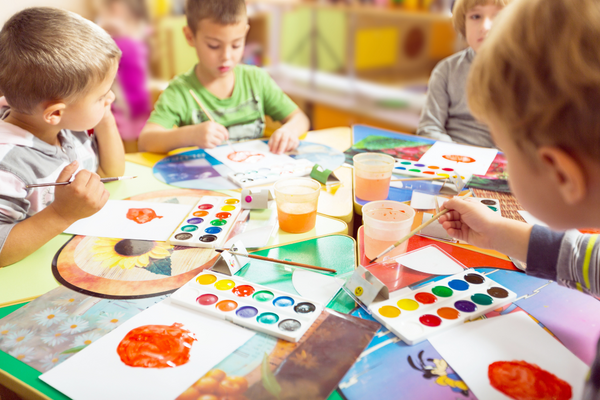
Abstract: To review the expressive capacity of play and support a better understanding of creative play in the health and wellness of children. To learn more about the creative expressive capacity of play and its potential support to early mindfulness in small children. To observe stress reduction in relation to play experience and better understand the therapeutic role of play in self-esteem and role development in small children.
Methods: Facilitated through both quantitative and qualitative research reflections during the pandemic at Durans Place for Kids. Reflections done by parents or play observed at the center.
Findings: That children benefitted from creative play where they could use their imagination and express themselves. Their energy and momentum were supported and it appeared they felt well.
Children engaged in independent play or social play practiced role playing and speech and developed more self-mastery in their own unique ways.
The research reflections revealed that parents stated their children were calmer and more focused after experiencing expressive creative play.
The use of imagination and creative self-expression supported more expression for children and was similar to a form of stress release and acting out on stress or responses.
Parents tried to encourage and lead expressions or reflections and the children elaborated on it in their own unique ways and this resembled an early form of mindfulness to practice with children during play.
It was observed that children participated in various forms of role play in solitary and in group play that supported role definition and a more advanced level of articulation that supported the benefit of mindfulness and expressive role play as being therapeutic in their experience.
Parents provided research reflections that supported their child felt better after play and daily forms of expressive play.
The reflective research responses indicated that children were receptive to communication in supportive ways during play that supported their self-expression during play.
The research reflections indicated that play was like early mindfulness if the child was able to get to the level where they could be truly creatively expressive.
Interpretation: That creative play can be very therapeutic for children and reduce stress and be supportive like a form of early mindfulness. There is tremendous benefit to play in balancing the role development and communication and early formats in cognition and early mindfulness in children.
Conclusion: That children benefit in a multifacet dimension from being able to engage on creative unstructured play on a daily basis.
